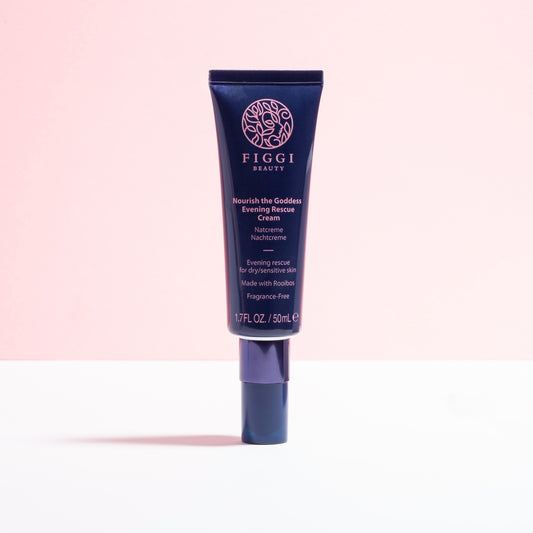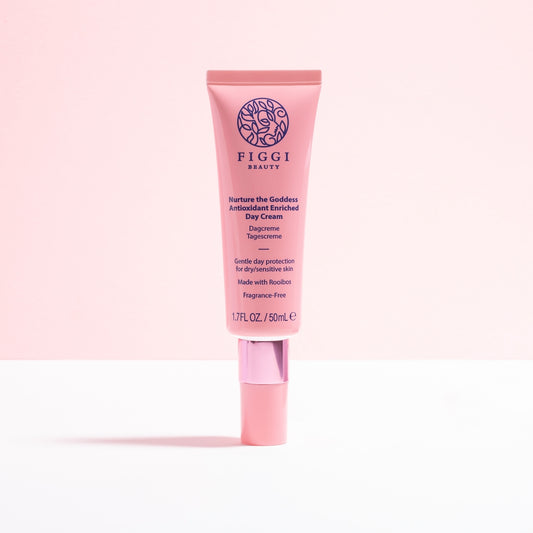The amazing world of natural products is alluring, and the idea of only using natural elements on something as important as our skin is inviting. In a world filled with synthetic ingredients, fake people, and things that seem to work toward killing us daily, moving to a more natural approach seems to be the ultimate dream we would all like to make a reality. Although there is much to be said about natural products in our lives, we sometimes overlook the incredible benefits specific synthetic processes can bring us. In skin care, for example, using bio-engineered ingredients to avoid exploiting natural resources can often be better for the environment.

As with all things, there are no purely good or evil sides. The trick is a healthy balance. I am always drawn back to the age-old saying, “There may be too much of a good thing.” After all, as Dr. Suess reminds us: “Life is a great balancing act.”
I write this post knowing there are some powerful feelings about this topic and ask that you grant me the benefit of the doubt over the next few minutes as I explain, in my view, why natural skincare is not always better.
Chemical Exfoliants
Let’s look at the various social trends online. It looks delicious and exciting to smear a fresh avocado all over your face or to indulge in a cold and refreshing mask made from freshly mushed-up papaya. The issue with this is that you do not know the amount of potentially irritating actives you put on your skin. If you have intensely sensitive skin, like me, this is a huge no-no.
Many fruits naturally contain alpha hydroxy acids or AHAs. This may seem familiar since we all read about these in the exfoliation conversation. Chemical exfoliating is hugely popular in skincare, so much so that many unfortunately overdo it and end up suffering from broken skin barriers. This self-care step needs to be approached with caution, for sure. Many fruits contain exfoliating acids that are too harsh for sensitive skin and must be used cautiously by those without a sensitive host. These acids include salicylic acid, mandelic acid, and glycolic acid.
The further issue created by this is the fact that you need to know what concentration of AHAs is present in your freshly mashed papaya. There are extensive safety tests in a bio-engineered process. The percentage of acid is precisely and methodically added to the end product. Creating a more informed and safer experience for the user.
Essential Oils
Many plant extracts naturally contain essential oils. Although there are many scientifically proven benefits for various essential oils, these must be approached cautiously. Unfortunately, you may be prone to reacting to certain essential oils if you have sensitive skin. For example, I’ve reacted badly to tea tree oil, lavender, and citrus-based essential oils. Therefore, if you are using natural plant extracts and herbs on your skin, you may be unwittingly introducing an irritant to your skin.
The same issues persist with the concentration of the oil. High concentrations of essential oils can cause reactions on the skin, and we must understand the percentage of the essential oil in the product we place on our skin. Again, this percentage is precisely and methodically calculated in a synthetic or bio-engineered environment in the end formulation.
Preservatives
Skincare is the ultimate breeding ground for dangerous microorganisms. Most skincare provides the perfect environment for microorganisms to grow, survive, and thrive. This is why it is so important to have suitable preservatives to keep our products stable and safe. This critical step should be noticed or appreciated in all-natural skincare products. There will often be an idea that an antioxidant like Vitamin E can serve as the perfect natural preservative for a natural skincare product. This cannot be more harmful as it is, in fact, an antioxidant and not a preservative. This means that when exposed to certain daily conditions, like air, it oxidizes, becoming brownish and useless. Therefore, it can no longer provide any antioxidant or other properties to your product.
The other important issue with all-natural products is the packaging. A good rule is to never use all-natural products if they are not supplied in fully airtight containers. Because natural preservatives are not as effective as synthetic preservatives, the product is more vulnerable to microorganism growth. Take a cream jar, for example. It needs an excellent preservation system because it is constantly opened and exposed to air; we often put our fingers into the cream or jar and store it in a humid environment. All of these are precisely what those nasty little microorganisms need to thrive.
The Environment
We are often so overtaken by the idea of only using natural elements on our skin that we forget what we are doing to the environment. It can be more harmful and exploitive to natural resources to use all-natural than to bioengineer a synthetic version of what nature provides us. Through this method, we do not constantly have to exploit mother nature. However, we can learn from her and remodel it in a way that benefits us while preserving her for future generations.
The Takeaway
I hope this post was helpful to you. I do not intend to persuade you toward synthetic ingredients or make a case that one is better than the other. Skincare is a deeply personal experience; you should use what makes you feel good. However, we all have the right to make informed decisions about what is best suited to us. I hope this post gave you the background information you needed.
Love and Light
Jeanne




